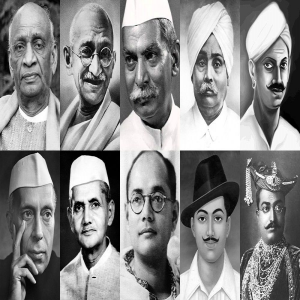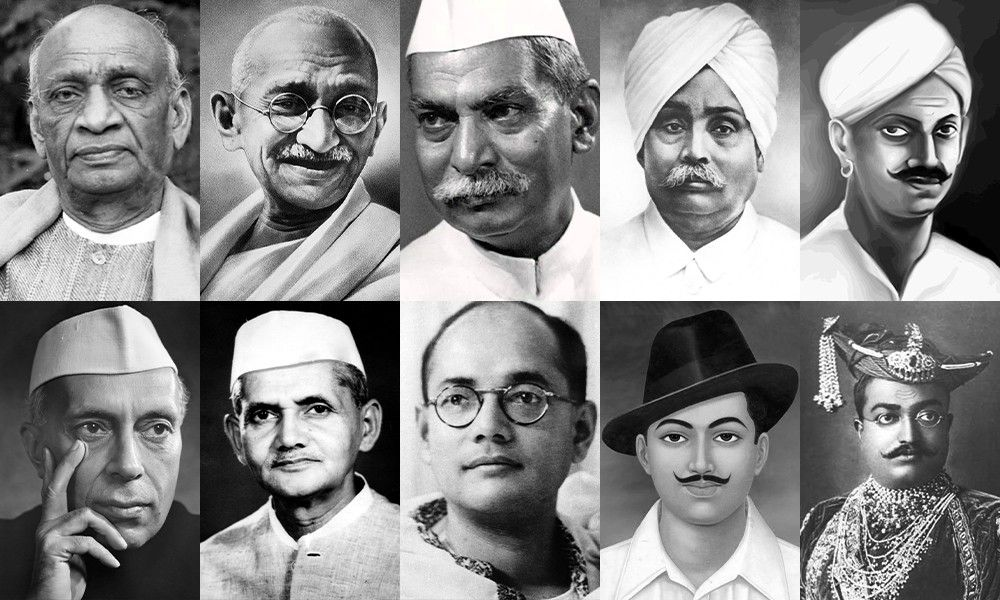
.jpg) Peter Fernandes
Peter Fernandes

Humans are the only creatures on earth with reason and free will. This makes humans remarkable creatures, among all others, who enjoy God's creation and freely offer thanks and praises to their creator. Freedom is a fundamental right that ought to be respected and honoured at all times. Consequently, it is imperative to understand the implications of what it means to be free for freedom. Peter Marshall once said, "May we think of freedom, not as the right to do as we please but as the opportunity to do what is right." Ordinarily, humans, in their true nature, would decipher this aspect of freedom without any hesitation to dwell in peace and happiness.
However, corrupt human nature desires power and dominance over others, which distorts the objective reality and creates confusion and chaos in society. To that effect, Abraham Lincoln said, "Those who deny freedom to others deserve it not for themselves." People in jail long for freedom. People living under an oppressive government also long for freedom.
The Indian freedom fighters understood the true human nature, "free for freedom," and vigorously and sincerely, in unison with the people of the nation, fought for freedom from foreign occupation. Since 1947, on August 15, India proudly celebrates Independence Day as we recall the great and noble sacrifice made by many during the freedom struggle. However, the reality of human nature, "Free for Freedom," is not a guarantee given on August 15, 1947, but an opportunity for a constant quest for freedom to rise up to true human nature to live in true freedom for peace and happiness.
Eleanor Roosevelt provides a profound insight into sinful humankind: "True patriotism springs from a belief in the dignity of the individual, freedom, and equality not only of one's nation but for all people on earth." Therefore, if freedom is our fundamental right as enshrined in our Constitution, do all Indians enjoy this right in free India?
You can think of freedom as the condition in which you have the choice to love any friend you wish. Siddhartha Gautama, in reaction to many other things, fought against the established religion in India at the time —Brahminism for denying this freedom. The social caste system, as described in the Indian Sub-continent, is contrary to freedom and was one of the most significant factors in the development of Buddhism. The caste system is an antithesis of true human nature, "Free for freedom," for it enslaves humans and dehumanises those on the low strata of society.
Buddha levelled the hegemony of the Brahmin caste, who had created fear in society of having direct access to the gods through rituals. The goal for both Hindus and Buddhists is to escape the samsaric cycle of rebirth. In Buddhism, anyone who understood the teachings of the Buddha could achieve salvation, and Brahminism no longer remained a privileged class. Gautama Buddha proposed a middle path that truly enlightens and liberates humans from the clutches of pain and sorrow. The middle path teaches adherents to avoid extremes, meaning neither a life of luxury as a prince nor starving himself.
For good reason, some accepted Buddha as the ninth incarnation of Lord Vishnu. Mallikarjun Kharge questioned right-wing Hindutva proponents as to why they didn't accept the thoughts of Buddha when they said that Buddha was the ninth incarnation of Lord Vishnu. Recalling the noble past of Hinduism, Kharge said they accept the eight avatars and respect their thoughts. But, when it comes to the ninth avatar (Buddha), they not only disagree with, but also make every effort to kill the Buddhist thought.
Freedom to practice one's religion is a fundamental right. The existence of human beings on earth is for this very reason: to know the truth (God) and follow the truth in freedom to achieve peace and happiness. Post-Independence, this right to freedom of religion has come under scrutiny, and post-2014, it is under serious threat. Several states in India have passed anti-conversion laws, mainly to appease the majority community for votes and also to please the right-wing Hindutva ideologues (RSS) by going against the Indian Constitution.
The right to freedom of religion is well described in Articles 25, 26, 27, and 28 of the Indian Constitution: before the State, no religion shall be given preference over the other. Citizens are free to preach, practice, and propagate any religion of their choice. The father of the Indian Constitution, Dr Ambedkar, understood the danger emanating from RSS vis-à-vis religious freedom and chose to convert to Buddhism in Nagpur. Nagpur is the headquarters of the RSS, which subscribes to Manusmriti and advocates inequality among human beings.
Dr Ambedkar chose the same day and city to convert to Buddhism to promote equality and self-respect when the RSS planned a parade in Nagpur to promote inequality. The father of modern India, Raja Ram Mohan Roy, fought for many issues that plagued Indian society, especially Sati. He campaigned against the caste system, untouchability, superstitions, and the use of intoxicants. He also founded the Atmiya Sabha to campaign against idolatry, caste rigidities, meaningless rituals, and other social ills. In free India, where do we stand vis-à-vis freedom? Many are lynched in the name of cows under the patronage of the present dispensation. The minorities in India live not in freedom but in fear, and it is at the behest of the Hindutva ideology. Without a doubt, in India, "Free for Freedom" is a distant reality.
The purpose of human existence on earth is to know the truth. Aristotle sums up this purpose in these words: "Men by nature desire to know, and the object of his desire is truth." In the Indian context, it is said that humans are on a relentless search for truth. Jesus concurs with human nature and says, "Know the truth, and truth shall set you free." Independence Day should remind us of our true nature and final destination; hence, let freedom reign, for we were created "Free for Freedom."